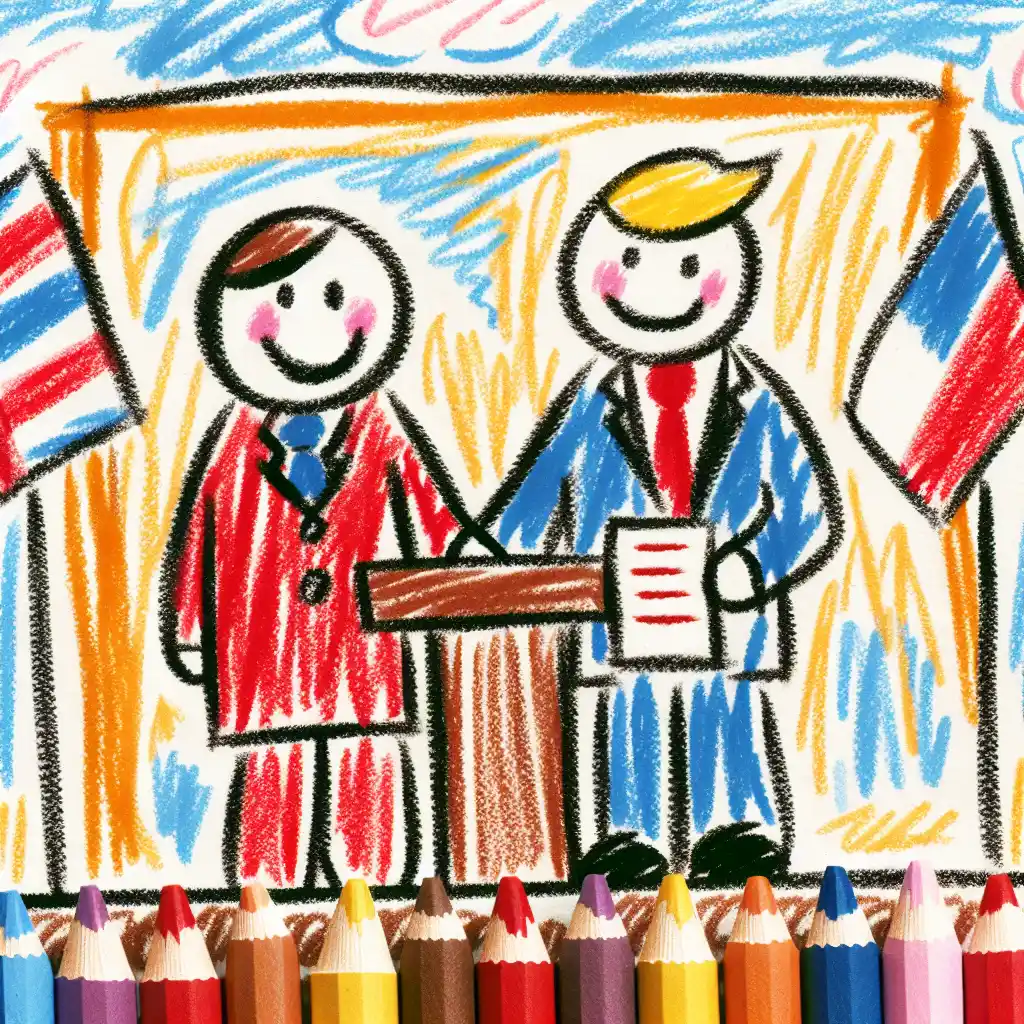Trump Announces New Trade Deal with Japan

Explain Like I'm 5
Imagine you have a big box of toys, and your friend has a big box of snacks. You agree to swap some toys for some snacks so both of you can have fun and yumminess. President Trump and Japan's leader made a similar kind of swap deal, but instead of toys and snacks, they're swapping things like cars and electronics. They agreed that for every 100 snacks Japan sends to the U.S., the U.S. will ask for 15 extra snacks as a kind of "thank you" gift. This deal also means Japan will bring over a huge pile of toys to play with in America's yard, making it more fun and better for everyone here.
Explain Like I'm 10
President Trump has made a new deal with Japan, like how you might trade cards or video games with your friends. In this deal, there's something called a 15% tariff, which is like a tax. So, if Japan wants to sell something in the U.S., they have to pay a little extra. This helps American businesses because it can make Japanese products a bit more expensive, which might make more people buy American products that are cheaper in comparison.
The deal also includes a big promise from Japan to spend a lot of money in the United States, over half a trillion dollars! This could mean new businesses or factories being built here, which is great because it can create jobs and make the economy stronger. It’s like if someone promised to buy a whole lot of lemonade from your stand in the future—it means good times ahead for your lemonade business!
Explain Like I'm 15
President Donald Trump recently announced a new trade agreement with Japan, placing a 15% import tax (tariff) on Japanese goods. This move is part of his broader strategy to prioritize America's economic interests and encourage job growth and domestic manufacturing. By making foreign products more expensive, it can make American-made products more appealing, thus supporting local businesses and potentially boosting employment.
The agreement also involves a significant investment from Japan in the U.S., exceeding $500 billion. This could lead to new Japanese companies setting up shop in the U.S. or existing ones expanding their operations, which would inject money into local economies and create jobs.
Historically, the U.S. and Japan have had complex trade relations, often negotiating to balance Japan's export-driven economy with the U.S.'s need to protect its manufacturers from overwhelming competition. This deal appears to be a continuation of the U.S.'s strategy to renegotiate trade terms to favor American economic interests.
As for the broader implications, this deal could influence global trade dynamics and U.S.-Asia economic policies. It also might set a precedent for how the U.S. will handle trade with other countries in Asia, particularly China, with whom trade tensions have been notably high. The response from economic experts and international observers will likely focus on how this deal affects global markets and international relations, as well as its impact on the upcoming U.S. economic policies.
Want to read the original story?
View Original Source